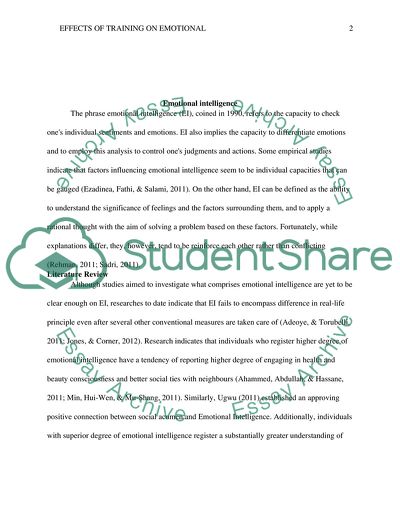Cite this document
(Effects of Training on the Level of Emotional Intelligence Research Proposal Example | Topics and Well Written Essays - 1250 words, n.d.)
Effects of Training on the Level of Emotional Intelligence Research Proposal Example | Topics and Well Written Essays - 1250 words. https://studentshare.org/education/1766278-the-effect-of-emotional-intelligence-on
Effects of Training on the Level of Emotional Intelligence Research Proposal Example | Topics and Well Written Essays - 1250 words. https://studentshare.org/education/1766278-the-effect-of-emotional-intelligence-on
(Effects of Training on the Level of Emotional Intelligence Research Proposal Example | Topics and Well Written Essays - 1250 Words)
Effects of Training on the Level of Emotional Intelligence Research Proposal Example | Topics and Well Written Essays - 1250 Words. https://studentshare.org/education/1766278-the-effect-of-emotional-intelligence-on.
Effects of Training on the Level of Emotional Intelligence Research Proposal Example | Topics and Well Written Essays - 1250 Words. https://studentshare.org/education/1766278-the-effect-of-emotional-intelligence-on.
“Effects of Training on the Level of Emotional Intelligence Research Proposal Example | Topics and Well Written Essays - 1250 Words”. https://studentshare.org/education/1766278-the-effect-of-emotional-intelligence-on.


